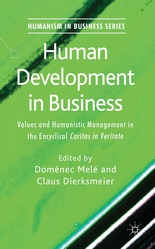 In mid-2009, when the current crisis had already been unfolding for some time, Benedict XVI wrote: “The different aspects of the crisis, its solutions, and any new development that the future may bring, are increasingly interconnected, they imply one another, they require new efforts of holistic understanding and a new humanistic synthesis.” This quotation comes from the encyclical-letter Caritas in veritate (Love in truth) (n.21), a document which contains noteworthy proposals. More than simply criticizing the deficiencies of the current economic system, the Pontiff looked at its anthropological foundations, its methodological reasoning, and also the necessity for a more integrated vision of economics and ethics. His vision is empowering, but at the same time challenges our courage and abilities to innovate
In mid-2009, when the current crisis had already been unfolding for some time, Benedict XVI wrote: “The different aspects of the crisis, its solutions, and any new development that the future may bring, are increasingly interconnected, they imply one another, they require new efforts of holistic understanding and a new humanistic synthesis.” This quotation comes from the encyclical-letter Caritas in veritate (Love in truth) (n.21), a document which contains noteworthy proposals. More than simply criticizing the deficiencies of the current economic system, the Pontiff looked at its anthropological foundations, its methodological reasoning, and also the necessity for a more integrated vision of economics and ethics. His vision is empowering, but at the same time challenges our courage and abilities to innovate
An international team of university professors from different disciplines have accepted this challenge and spent substantial time studying the Papal document from various perspectives and exchanging their ideas. Their works have been grouped in an edited volume which has just been published. The collection has two parts, each with a quite different focus. The first of these closely examines a more holistic approach to economic activity. It contrasts the philosophical and theological message of the encyclical with the neo-classical economic paradigm (Dierksmeier), analyzes the rupture between the economic and social spheres, the disconnection between work and the origin of wealth, the divorce between the market and democracy, and also the necessity to repair all of these breakdowns (Zamagni). The section also includes the critique of recent developments in the financial markets and points to the need for a recovery of the anthropological and moral substance of financial activity (Dembinski). . It goes on to reflect on the need of an ethics that is ‘person-friendly’ to achieve a correct economic dynamism (Melé), on the recovery of a wider rationality than the current calculating version, and on the introduction of the logic of gift into the world of economics and business (Torralba-Palazzi). Following the inspiration of the encyclical, there is also an interesting proposal regarding the reformulation of corporate social responsibilities (Aßländer).
The second part is dedicated to human development through humanist management. It begins with a work which highlights the vocational nature of development, and the need for one’s own gift to achieve it, and the consequent implications for business management (Kennedy). Then, it discusses too the profile of the humanistic business person underlying the encyclical (Beabout), and how Christian humanism can contribute to better company management (Pezoa). We read that, other than contracts, love for others and the logic of gift also merit a place in the theory of the company (Argandoña), and see that, throughout history of entrepreneurial activity, evidence can be found of gratuity (Habisch y Loza). There is also the examination of work as a means of development, specifically considering the obstacles and opportunities encountered by working mothers (Miller).
In short this is a book with well-founded proposals that will surely help the reader reflect on coming through the crisis, and moving forward to the future; regardless of my involvement as co-editor, my recommendation to read it is genuine. As always, all of your comments will be warmly welcomed.

